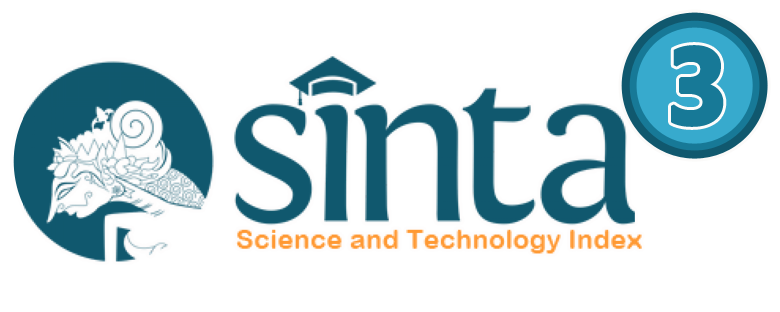Relationship Between Parent Career Behavior with Career Maturity among Syiah Kuala University Students
DOI:
https://doi.org/10.18326/ijip.v5i1.165Keywords:
Career Maturity, Parent Career Behavior, College StudentsAbstract
Career maturity is one of the developmental tasks that students must fulfill as early adults or late adolescents. Good career maturity will affect the selection of a student career life in the future. One of the factors that influence student career maturity is parent career behavior. Parent career behavior is a parent's behavior or parenting style related to a child's career. This research uses quantitative research methods with a correlation approach. The purpose of this study was to see a relationship between parent career behavior and career maturity in Syiah Kuala University students. Sampling using a nonprobability sampling technique of quota sampling type with a total of 332 research respondents. The results showed that there was a positive relationship between parent career behavior and career maturity in Syiah Kuala University students. The hypothesis test was carried out using the Spearman Correlation technique and obtained a significance value (p)=0.000 (p<0.05) and a correlation coefficient value (r)=0.428. In addition, the results of the study also showed that most respondents were in the category of career maturity and moderate parent career behavior.
References
Agustina, N., Nurmaisara, O., & Anggriana, T. M. (2017). Upaya Meningkatkan Kematangan Pemilihan Karir Melalui Bimbingan Kelompok Dengan Teknik Problem Solving. Prosiding Seminar Nasional Bimbingan Dan Konseling, 1(1), 195–200.
Ainayya, S. P., & Herdajani, F. (2021). Hubungan harga diri dan dukungan orang tua dengan kematangan karir pada mahasiswa tingkat akhir jurusan komunikasi angkatan 2016 di Universitas “ X ” Jakarta. Jurnal IKRA-ITH Humaniora, 5(2), 40–46.
Aminah, A., Sobari, T., & Fatimah, S. (2021). Hubungan self efficacy dengan kematangan karier peserta didik kelas XII SMA. FOKUS (Kajian Bimbingan & Konseling Dalam Pendidikan), 4(1), 39–48.
Ayuni, A. N. (2015). Kematangan Karir Siswa Kelas XI Ditinjau dari Tingkat Pendidikan Orang Tua dan Keadaan Ekonomi Keluarga di SMA Negeri 1 Pakem Tahun Ajaran 2014/2015. Jurnal Riset Mahasiswa Bimbingan Dan Konseling.
Barnes, H. L., & Olson, D. H. (1985). Parent-adolescent communication and the circumplex model. Child Development, 438–447.
Brown, S. D., & Lent, R. W. (2004). Career development and counseling: Putting theory and research to work. John Wiley & Sons.
Choi, S., Hutchison, B., Lemberger, M. E., & Pope, M. (2012). A longitudinal study of the developmental trajectories of parental attachment and career maturity of South Korean adolescents. The Career Development Quarterly, 60(2), 163–177.
Crites, J. O., & Savickas, M. L. (1978). Career maturity inventory.
Dietrich, J., & Kracke, B. (2009). Career-specific parental behaviors in adolescents’ development. Journal of Vocational Behavior, 75(2), 109–119. https://doi.org/10.1016/j.jvb.2009.03.005
Grashinta, A., Istiqomah, A. P., & Wiroko, E. P. (2018). Pengaruh Future Time Perspective Terhadap Kematangan Karir Pada Mahasiswa. Jurnal Psikologi Pendidikan Dan Konseling: Jurnal Kajian Psikologi Pendidikan Dan Bimbingan Konseling, 4(1), 25. https://doi.org/10.26858/jpkk.v4i1.4981
Greenbank, P., Hepworth, S., & Mercer, J. (2009). Term‐time employment and the student experience. Education+ Training.
Guay, F., Ratelle, C. F., Senécal, C., Larose, S., & Deschênes, A. (2006). Distinguishing developmental from chronic career indecision: Self-efficacy, autonomy, and social support. Journal of Career Assessment, 14(2), 235–251.
Hair, J. F., Black, W. C., Babin, B. J., Anderson, R. E., & Tatham, R. (2006). Multivariate data analysis. NJ: Pearson Prentice Hall.
Hamzah, W. (2019). Pengaruh Beban Kerja dan Dukungan Sosial terhadap Kelelahan Kerja. Psikoborneo: Jurnal Ilmiah Psikologi, 7(2).
Herin, M., & Sawitri, D. R. (2017). Dukungan orang tua dan kematangan karir pada siswa SMK program keahlian tata boga. Jurnal Empati, 6(1), 301–306.
Jatmika, D., & Linda, L. (2017). Gambaran kematangan karir pada mahasiswa tingkat akhir. Psibernetika, 8(2).
Jusman, M., & Suarni, W. O. (n.d.). Jahada.(2017). Pengaruh Pemberian Layanan Informasi Karir Terhadap Kematangan Karir Siswa SMA Muhammadiyah Kendari. Jurnal Bening, 1(2), 38–50.
Juwitaningrum, I. (2013). Program bimbingan karir untuk meningkatkan kematangan karir siswa SMK. PSIKOPEDAGOGIA Jurnal Bimbingan Dan Konseling, 2(2), 132–147.
Keller, B. K., & Whiston, S. C. (2008). The role of parental influences on young adolescents’ career development. Journal of Career Assessment, 16(2), 198–217.
Kuncoro, M. (2011). Metode Kuantitatif. In Unit Penerbit dan Percetakan Sekolah Tinggi Ilmu Manajemen (4th ed.).
Lailatunnikma, L., & Nastiti, D. (2021). Overview of career maturity in class XII students in high school. Academia Open, 4, 10–21070.
Lee, S.-A., Lee, H.-S., Song, H.-S., & Kim, S.-G. (2015). The relationship between attachment and career maturity: The mediating role of self-efficacy. International Social Work, 58(1), 153–164.
Ma’rufi, A. R., Mujidin, M., & Yuzarion, Y. (2020). Hubungan konsep diri dan dukungan sosial orang tua terhadap kematangan karier siswa ma madania. Wahana Islamika: Jurnal Studi Keislaman, 6(2), 133–145.
Maharani, R., & Budianto, A. (2019). Pengaruh beban kerja terhadap stres kerja dan kinerja perawat rawat inap dalam. Journal of Management Review, 3(2), 327–332.
Mardiyati, B. D., & Yuniawati, R. (2015). Perbedaan adaptabilitas karir ditinjau dari jenis sekolah (SMA dan SMK). Universitas Ahmad Dahlan.
Marpaung, D. N., & Yulandari, N. (2017). Kematangan karir siswa SMU Banda Aceh ditinjau dari jenis kelamin dan jenis sekolah. Psikoislamedia: Jurnal Psikologi, 1(2).
Mortimer, J. T., Zimmer-Gembeck, M. J., Holmes, M., & Shanahan, M. J. (2002). The process of occupational decision making: Patterns during the transition to adulthood. Journal of Vocational Behavior, 61(3), 439–465.
Mukhtar, E., Munawar, M., Ishfaq, S., Akram, M., Raza, J., Submitted, A. T., Parcial, I. N., The, O. F., For, R., Degree, T. H. E., Masters, O. F., & Campus, G. (2018). Impact of career specific parental behavior on studnts career choice. Global Scientific Journal, 6(7), 421–465.
Panggabean, Y. F., Dharmayana, I. W., & Sulian, I. (2019). Hubungan antara efikasi diri dengan kematangan karir pada siswa kelas xi tata boga di smk negeri 3 kota bengkulu. Consilia: Jurnal Ilmiah Bimbingan Dan Konseling, 2(2), 140–150.
Papalia, D. E., Olds, S. W., & Feldman, R. D. (2008). Human Development (Psikologi Perkembangan) Jakarta: Kencana.
Park, Y.-S., & Kim, U. (2006). Family, parent-child relationship, and academic achievement in Korea: Indigenous, cultural, and psychological analysis. Indigenous and Cultural Psychology: Understanding People in Context, 421–443.
Patton, W., Bartrum, D., & Creed, P. (2004). Gender differences for optimism, self-esteem, expectations and goals in predicting career planning and exploration in adolescents. International Journal for Educational and Vocational Guidance, 4(2–3), 193–209.
Patton, W., & Lokan, J. (2001). Perspectives on Donald Super’s construct of career maturity. International Journal for Educational and Vocational Guidance, 1, 31–48.
Pinasti, W. (2011). Pengaruh self-efficacy, locus of control dan faktor demografis terhadap kematangan karir mahasiswa UIN Syarif Hidayatullah Jakarta.
Prasasti, D. S. D. (2017). Perbedaan Kematangan Karir Ditinjau Dari Konsep Diri dan Gender Pada Siswa Kelas X Di SMA PGRI 1 Kota Mojokerto. Character: Jurnal Penelitian Psikologi., 4(1).
Qudsiyah, U., Wibowo, E. M., & Mulawarman. (2018). The Influence of Parental Attachment to Career Maturity with Self Efficacy as Mediator. Jurnal Bimbingan Konseling, 7(1), 41–47.
Rahmadani, R., Yusuf, A. M., & Afdal, A. (2021). Peranan Bimbingan Karir untuk Kematangan Eksplorasi Karir Siswa. Jurnal Pendidikan Tambusai, 5(2), 3098–3101.
Raudatussalamah & Fitri, A. R. (2012). Psikologi kesehatan. Pekanbaru: Al-Mujtahadah Press.
Roach, K. (2010). The role of perceived parental influences on the career self-efficacy of college students. 42. http://digitalcommons.brockport.edu/edc_theses/88%0Ahttp://digitalcommons.brockport.edu/ edc_theses/ 88/
Saifuddin, A. (2018). Kematangan Karier Teori dan Strategi Memilih Jurusan dan Merencanakan Karier. Yogyakarta: Pustaka Pelajar.
Santilli, S., Marcionetti, J., Rochat, S., Rossier, J., & Nota, L. (2017). Career adaptability, hope, optimism, and life satisfaction in Italian and Swiss adolescents. Journal of Career Development, 44(1), 62–76.
Santrock, J. W. (2011). Perkembangan anak edisi 7 jilid 2. In Terjemahan: Sarah Genis B) Jakarta: Erlangga (7th ed.). Erlangga.
Seligman, M. E. P. (2005). Authentic happiness: Menciptakan kebahagiaan dengan psikologi positif. Bandung: Mizan.
Sugiyono. (2015). Metode penelitian kuantitatif, kualitatif dan R&D. Alfabeta.
Suharso, P. L. (2019). Efikasi Diri dalam Keputusan Karier: Mediator antara Parental Career-Related Behavior dan Vocational Exploration Commitment pada Pilihan Karir Remaja. Jurnal Psikogenesis, 7(1), 41–53.
Super, D. E. (1974). Vocational maturity theory: Toward implementing a psychology of careers in careers education and guidance. Teoksessa DE Super (Toim.) Measuring Vocational Maturity for Counselling and Evaluation. Washington DC: Nat. Vocational Guidance Association, 8–23.
Watkins Jr, C. E., & Campbell, V. L. (2012). Testing and assessment in counseling practice. Routledge.
Whiston, S. C., & Keller, B. K. (2004). The influences of the family of origin on career development: A review and analysis. The Counseling Psychologist, 32(4), 493–568.
Wibowo, N. R. (2022). Parental career-related behaviors dan kematangan karir remaja. Jurnal Psikologi, 15, 187–197.
Wijaya, I. P. (2012). Efikasi diri akademik, dukungan sosial orangtua dan penyesuaian diri mahasiswa dalam perkuliahan. Persona: Jurnal Psikologi Indonesia, 1(1).
Downloads
Published
Issue
Section
License
Copyright (c) 2023 IJIP : Indonesian Journal of Islamic Psychology

This work is licensed under a Creative Commons Attribution-ShareAlike 4.0 International License.

 Indonesian Journal of Islamic Psycology is licensed under a
Indonesian Journal of Islamic Psycology is licensed under a 


